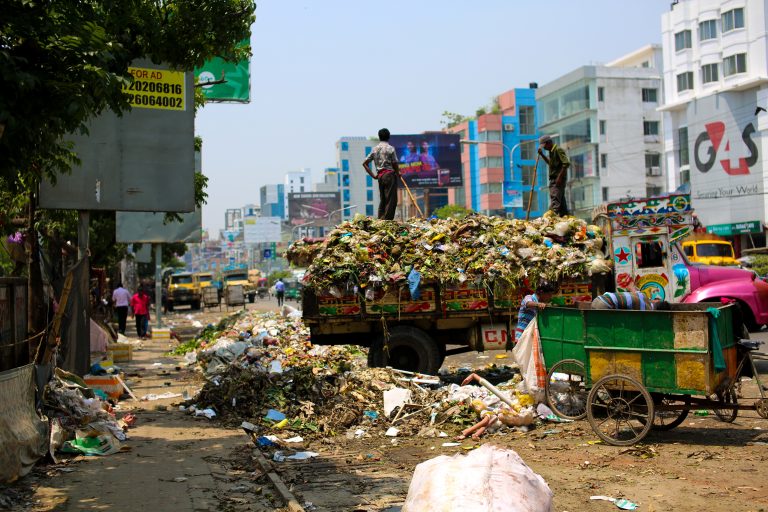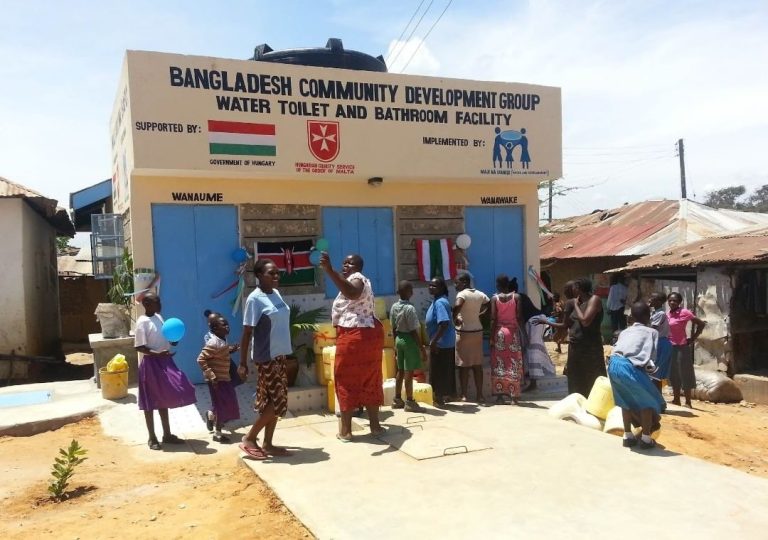In a world where inequality continues to shape the daily realities of millions, there are organizations that stand out—not for their size or loud proclamations, but for the quiet, consistent impact they make in the most underserved communities. The Hungarian Charity Service of the Order of Malta (HCSOM) is one such beacon of hope. Rooted in a long tradition of compassion, service, and faith, HCSOM has spent decades bridging the gap between the privileged and the forgotten. In Kenya, their presence—particularly in Mombasa’s informal settlements—has redefined what it means to serve with humility, dignity, and unwavering commitment.
Who Is HCSOM?
The Hungarian Charity Service of the Order of Malta is a humanitarian organization born from the legacy of the Order of Malta, a Catholic lay religious order dating back over 900 years. While the Order operates in more than 120 countries, HCSOM represents its arm of operations in Hungary and beyond, bringing a unique Eastern European perspective to global humanitarian needs.
Their work spans multiple continents, with interventions focused on disaster response, health services, elderly care, inclusion of persons with disabilities (PWDs), and support for marginalized communities. Though they operate globally, what makes HCSOM exceptional is how deeply they embed themselves in local contexts, working hand-in-hand with grassroots partners to ensure lasting change.
A Life-Changing Presence in Kenya
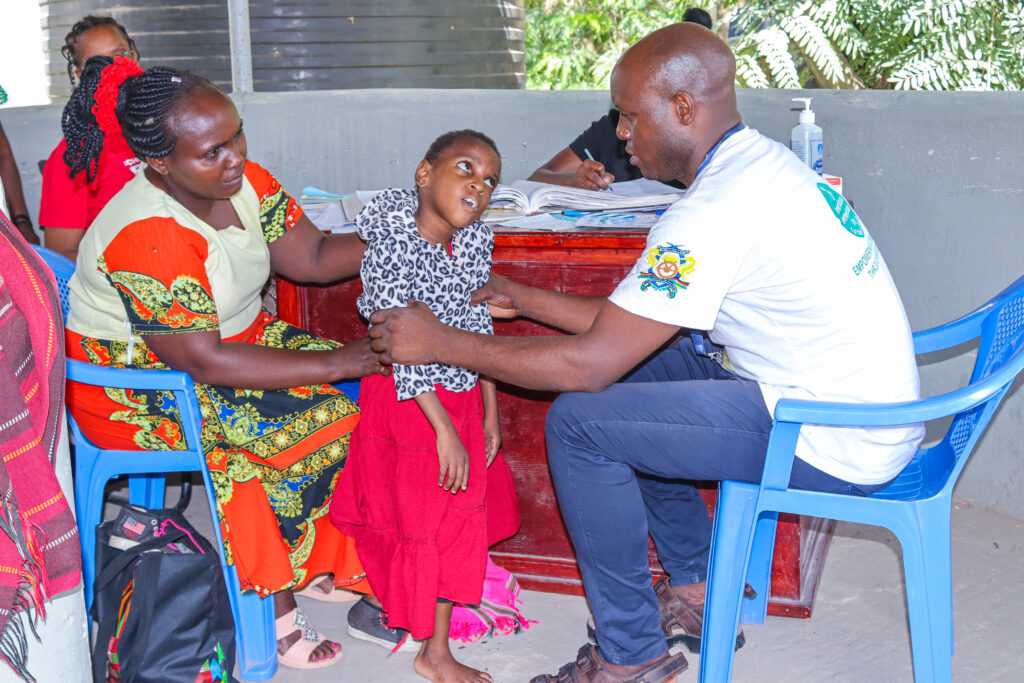
In Jomvu Sub-County, Mombasa, HCSOM has become a trusted partner in some of the most critical and transformative disability-inclusive development efforts to date. Through partnerships with Maji na Ufanisi (MNU) and the Association for the Physically Disabled of Kenya (APDK), HCSOM has invested not just financial resources, but knowledge, strategic guidance, and above all—faith in local communities’ ability to rise.
Social and Educational Integration for Children with Disabilities
One of the most significant initiatives supported by HCSOM in Jomvu is the Social and Educational Integration for Children with Disabilities in Bogobogo Informal Settlement. This project seeks to ensure that children living with disabilities—many of whom have remained invisible and unsupported for years—are given access to quality education, therapy, and healthcare.
HCSOM played a crucial role by:
- Providing technical and financial resources for stakeholder meetings and planning sessions.
- Supporting the training of Community Health Promoters (CHPs) and teachers to recognize and refer children with disabilities.
- Funding the creation of inclusive school programs and monitoring tools.
- Offering international best practices in community-based rehabilitation and inclusive education.
Their involvement ensured that the project did not remain just an idea but became a living, evolving example of community-led transformation.
Disability Registration Outreach: Making the Invisible Visible
In March 2025, HCSOM co-led a 5-day disability registration and outreach campaign in Jomvu. Working alongside APDK and MNU, HCSOM made it possible for over 700 unregistered persons with disabilities—many of them children—to receive medical assessments and NCPWD registration.
For many families, this was the first time their child was officially recognized as needing support. Registration is more than paperwork—it’s a gateway to state benefits, medical care, and education. HCSOM’s funding and coordination were instrumental in turning what could have been a small effort into a massive success.
Values in Action: What Sets HCSOM Apart
While many organizations fund projects, HCSOM doesn’t stop at financial aid. Their true strength lies in the values that guide their every action:
1. Faith and Service
Guided by the ethos of the Order of Malta, HCSOM embodies the principle of serving the poor and sick as a direct expression of faith. In every engagement, whether it’s designing a project or listening to community members, their actions are grounded in compassion and service.
2. Local Partnership, Not Paternalism
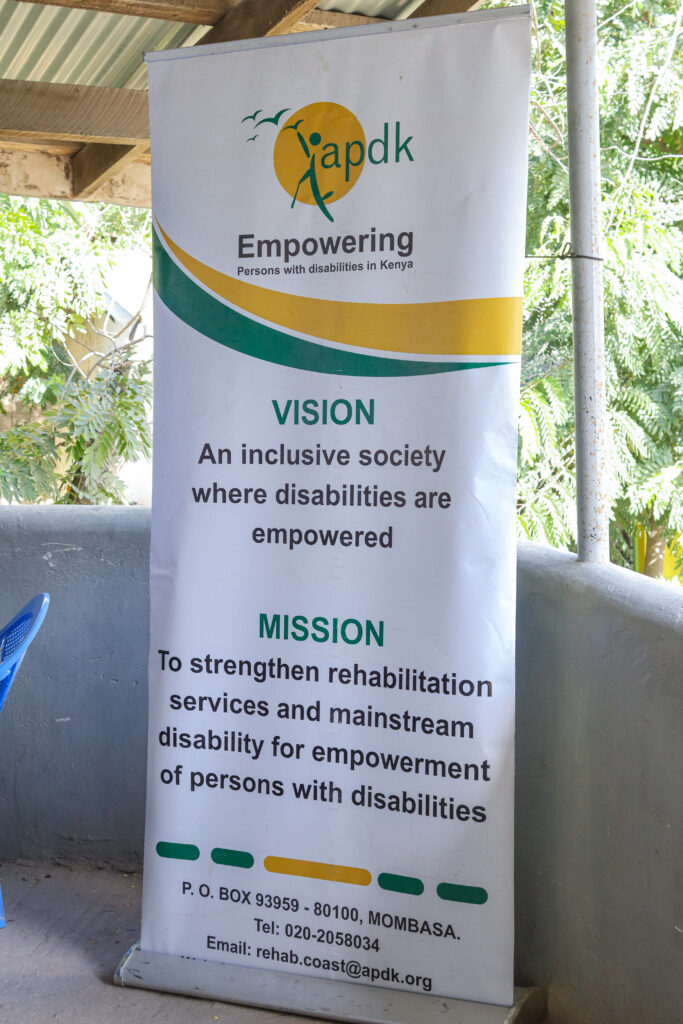
Rather than dictating terms, HCSOM operates in genuine partnership with local actors. They trust community organizations like MNU and APDK to lead on the ground while offering strategic, financial, and technical backing. This creates ownership, relevance, and sustainability.
3. Long-Term Thinking
Unlike short-term aid programs, HCSOM’s interventions are designed to last. Whether it’s capacity building, data systems, or infrastructure, they prioritize long-term solutions over quick fixes. Their support in creating referral pathways, baseline monitoring, and CHPs training reflects this commitment.
4. Respect for Human Dignity
At the heart of HCSOM’s work is respect for the dignity of every individual, especially the most marginalized. They approach persons with disabilities not as charity cases but as equals deserving of rights, opportunities, and voice.
Creating a Blueprint for Inclusive Development
With each intervention, HCSOM has helped to shape a replicable model for disability-inclusive community development in Kenya. By working with local schools, religious leaders, parents, and health workers, they’re ensuring that systems don’t just rely on external actors—but are rooted in the people they serve.
This approach is not only effective; it’s revolutionary in its simplicity. Empower communities. Equip local actors. Respect local culture. Offer support without overpowering. It’s a model more organizations can learn from.
The Human Impact: Stories That Matter
Behind every data point in HCSOM’s projects is a human story. A child who now goes to school with a hearing aid. A mother who no longer hides her child with autism. A young boy with cerebral palsy who received a wheelchair and can now play outside. These are the miracles quietly unfolding in Jomvu—because one organization chose to care, to listen, and to act.
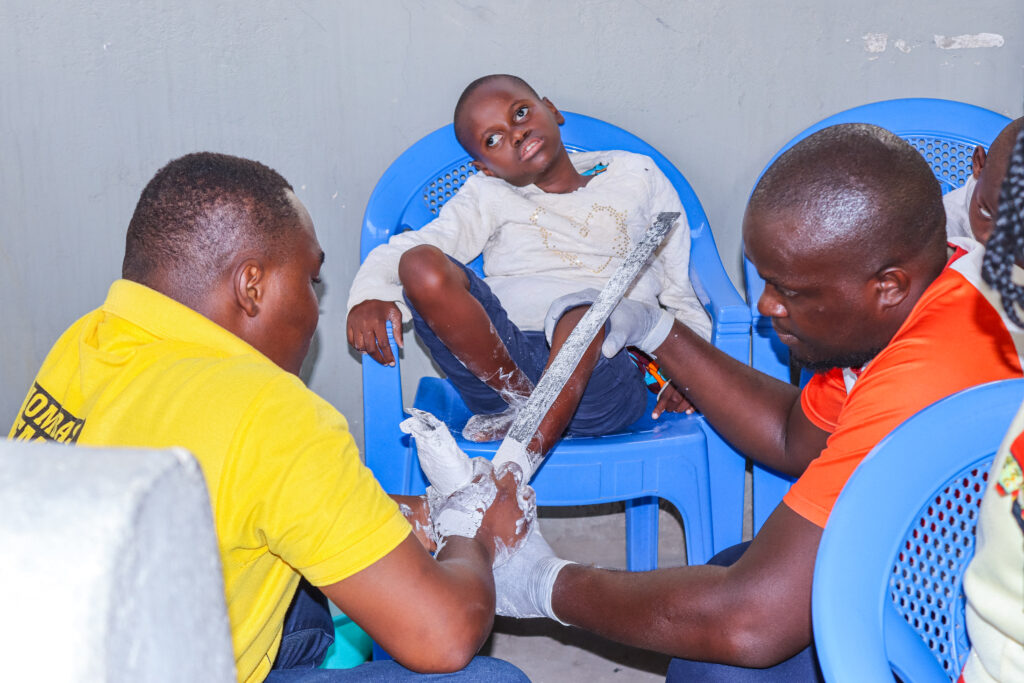
A Heartfelt Thank You
To the team at the Hungarian Charity Service of the Order of Malta—we say thank you.
Thank you for believing in communities that others overlook.
Thank you for showing that development can be dignified, inclusive, and locally owned.
Thank you for giving children with disabilities the tools to dream again—and the families around them the hope to believe in better days.
Thank you for reminding us all that charity isn’t just giving—it’s walking alongside.
Your impact in Jomvu is not just felt. It is lived—every day, in every classroom, every clinic, and every family that you’ve touched.
Conclusion: Walking the Path of Inclusion Together
The humanitarian footprint of the Hungarian Charity Service of the Order of Malta (HCSOM) in Kenya goes far beyond aid delivery. It is a story of deep collaboration, thoughtful empowerment, and relentless commitment to ensuring that no child, no family, no community is left behind. Their work in Jomvu and similar underserved areas continues to inspire hope where once there was despair.
By supporting CHPs, training teachers, facilitating disability registration, and investing in inclusive education and health systems, HCSOM is demonstrating that compassion, when combined with strategy and local partnership, creates powerful waves of change.
As they continue to work across Kenya and beyond, we remain proud to stand with them, learn from them, and amplify the lessons they so graciously share with the world.
To learn more about HCSOM, explore their projects, or support their mission globally, please visit their official homepage:
👉 www.maltai.hu
10 Frequently Asked Questions (FAQs)
1. What is the Hungarian Charity Service of the Order of Malta (HCSOM)?
HCSOM is a humanitarian organization based in Hungary and part of the global Order of Malta network. It works to serve the poor, sick, and marginalized across the world through healthcare, social inclusion, and development projects.
2. What role does HCSOM play in Kenya?
HCSOM provides funding, technical support, training, and monitoring for inclusive development initiatives—especially projects supporting children with disabilities in informal settlements like Jomvu, Mombasa.
3. Is HCSOM a religious organization?
Yes, HCSOM is grounded in Catholic values and operates under the Sovereign Order of Malta. However, it serves people of all faiths and backgrounds without discrimination.
4. How does HCSOM ensure sustainability in its projects?
They partner with local NGOs, empower community health promoters and teachers, and embed programs within local government structures to ensure long-term impact.
5. What kind of disability-related support do they provide?
Through partnerships, HCSOM supports medical assessments, NCPWD registration, provision of assistive devices (wheelchairs, hearing aids), therapy referrals, and inclusive education support.
6. Who are HCSOM’s partners in Kenya?
HCSOM works closely with Maji na Ufanisi (MNU) and the Association for the Physically Disabled of Kenya (APDK), along with county governments and local schools.
7. Do they support only children?
While children are the main focus, HCSOM-supported disability outreach campaigns also serve adults with disabilities through assessments, referrals, and support services.
8. How are teachers involved in their projects?
Teachers receive training on inclusive teaching practices, classroom accommodations, and early identification of children with special needs.
9. How can I support or donate to HCSOM?
You can support their global mission, including work in Kenya, by visiting their homepage www.maltai.hu and navigating to their donation or partnership sections.
10. What’s next for HCSOM in Kenya?
They aim to expand inclusive programming, reach more informal settlements, and strengthen systems that promote rights, dignity, and equal access for persons with disabilities.


